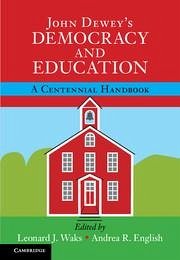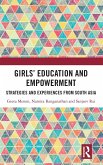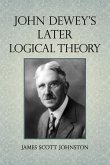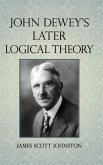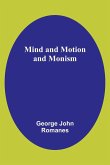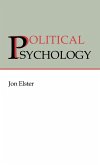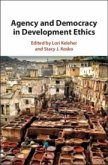John Dewey's Democracy and Education
A Centennial Handbook
Herausgeber: Waks, Leonard J; English, Andrea R
John Dewey's Democracy and Education
A Centennial Handbook
Herausgeber: Waks, Leonard J; English, Andrea R
- Gebundenes Buch
- Merkliste
- Auf die Merkliste
- Bewerten Bewerten
- Teilen
- Produkt teilen
- Produkterinnerung
- Produkterinnerung
This book offers expert in-depth insight into this important book and places its relevance in a present educational context.
Andere Kunden interessierten sich auch für
![Girls' Education and Empowerment Girls' Education and Empowerment]() Geeta MenonGirls' Education and Empowerment198,99 €
Geeta MenonGirls' Education and Empowerment198,99 €![John Dewey's Later Logical Theory John Dewey's Later Logical Theory]() James Scott JohnstonJohn Dewey's Later Logical Theory38,99 €
James Scott JohnstonJohn Dewey's Later Logical Theory38,99 €![John Dewey's Later Logical Theory John Dewey's Later Logical Theory]() James Scott JohnstonJohn Dewey's Later Logical Theory114,99 €
James Scott JohnstonJohn Dewey's Later Logical Theory114,99 €![John Dewey's Metaphysical Theory John Dewey's Metaphysical Theory]() Paul Benjamin CherlinJohn Dewey's Metaphysical Theory85,99 €
Paul Benjamin CherlinJohn Dewey's Metaphysical Theory85,99 €![Mind and Motion and Monism Mind and Motion and Monism]() George John RomanesMind and Motion and Monism18,99 €
George John RomanesMind and Motion and Monism18,99 €![Political Psychology Political Psychology]() Jon ElsterPolitical Psychology104,99 €
Jon ElsterPolitical Psychology104,99 €![Agency and Democracy in Development Ethics Agency and Democracy in Development Ethics]() Agency and Democracy in Development Ethics167,99 €
Agency and Democracy in Development Ethics167,99 €-
-
-
This book offers expert in-depth insight into this important book and places its relevance in a present educational context.
Hinweis: Dieser Artikel kann nur an eine deutsche Lieferadresse ausgeliefert werden.
Hinweis: Dieser Artikel kann nur an eine deutsche Lieferadresse ausgeliefert werden.
Produktdetails
- Produktdetails
- Verlag: Cambridge University Press
- Seitenzahl: 374
- Erscheinungstermin: 2. Mai 2017
- Englisch
- Abmessung: 259mm x 179mm x 27mm
- Gewicht: 843g
- ISBN-13: 9781107140301
- ISBN-10: 1107140307
- Artikelnr.: 48011625
- Herstellerkennzeichnung
- Libri GmbH
- Europaallee 1
- 36244 Bad Hersfeld
- gpsr@libri.de
- Verlag: Cambridge University Press
- Seitenzahl: 374
- Erscheinungstermin: 2. Mai 2017
- Englisch
- Abmessung: 259mm x 179mm x 27mm
- Gewicht: 843g
- ISBN-13: 9781107140301
- ISBN-10: 1107140307
- Artikelnr.: 48011625
- Herstellerkennzeichnung
- Libri GmbH
- Europaallee 1
- 36244 Bad Hersfeld
- gpsr@libri.de
Foreword David Hansen; Acknowledgments; Note on abbreviations; Introduction
Leonard J. Waks and Andrea R. English; Part I. Companion Chapters:
Introduction to Part I Leonard J. Waks; 1. Learning by doing and
communicating Leonard J. Waks; 2. Learning and its environments Loren
Goldman; 3. Giving form and structure to experience A. G. Rud; 4. Growth,
habits, and plasticity in education Sarah M. Stitzlein; 5. Democracy
without telos: education for a future uncertain Gonzalo Obelleiro; 6. What
is the role of the past in education? Andrea R. English; 7. 'A mode of
associated living': the distinctiveness of Deweyan democracy Kathleen
Knight Abowitz; 8. A democratic theory of aims Leonard J. Waks; 9. What is
the purpose of education?: Dewey's challenge to his contemporaries Avi I.
Mintz; 10. Shaping and sharing democratic aims: reconstructing interest and
discipline Terri S. Wilson; 11. Experience and thinking: transforming our
perspective on learning Andrea R. English; 12. The role of thinking in
education: why Dewey still raises the bar on educators Jack P. Smith, III
and Spencer P. Greenhalgh; 13. Method: intelligent engagement with subject
matter Doris A. Santoro; 14. Subject matter: combining 'learning by doing'
with past collective experience Meinert Meyer; 15. Work, play and learning
Christopher Winch; 16. Boundaries as limits and possibilities Scott L.
Pratt; 17. Knowing scientifically is essential for democratic society
Christine McCarthy; 18. Educational values: schools as cultures of
imagination, growth, and fulfillment Steven Fesmire; 19. The value of the
present: rethinking labor and leisure through education Scott R. Stroud;
20. An old story: Dewey's account of the opposition between the
intellectual and the practical David I. Waddington; 21. Nature and human
life in an education for democracy Martin A. Coleman; 22. Individuality and
a flourishing society: a reciprocal relationship Hongmei Peng; 23.
Autonomy, occupation and vocational education Christopher Winch; 24.
Philosophy of education Richard Pring; 25. Healing splits: Dewey's theory
of knowing Barbara Thayer-Bacon; 26. The consciously growing and refreshing
life Douglas J. Simpson; Part II. Democracy and Education in Context:
Introduction to Part II Andrea R. English; 27. The dialogue of death and
life: education, civilization, and growth Thomas Alexander; 28. John Dewey,
a modern thinker: on education (as Bildung and Erziehung) and democracy (as
a political system and a mode of associated living) Dietrich Benner; 29.
John Dewey's refutation of classical educational thinking Jürgen Oelkers;
30. The social as the 'inclusive philosophic idea' of democracy and
education: some constructivists' reflections Jim Garrison, Stefan Neubert
and Kersten Reich; 31. John Dewey and the analytic paradigm in philosophy
of education: conceptual analysis as a social aim? Christopher Martin; 32.
Dewey, care ethics, and education Nel Noddings; 33. Technologies for
democracy and education in the 21st century Craig A. Cunningham; 34.
Inviting Dewey to an online forum: using technology to deepen student
understanding of democracy and education Rosetta Marantz Cohen; 35. John
Dewey: philosopher of education for our time Richard Pring; Index.
Leonard J. Waks and Andrea R. English; Part I. Companion Chapters:
Introduction to Part I Leonard J. Waks; 1. Learning by doing and
communicating Leonard J. Waks; 2. Learning and its environments Loren
Goldman; 3. Giving form and structure to experience A. G. Rud; 4. Growth,
habits, and plasticity in education Sarah M. Stitzlein; 5. Democracy
without telos: education for a future uncertain Gonzalo Obelleiro; 6. What
is the role of the past in education? Andrea R. English; 7. 'A mode of
associated living': the distinctiveness of Deweyan democracy Kathleen
Knight Abowitz; 8. A democratic theory of aims Leonard J. Waks; 9. What is
the purpose of education?: Dewey's challenge to his contemporaries Avi I.
Mintz; 10. Shaping and sharing democratic aims: reconstructing interest and
discipline Terri S. Wilson; 11. Experience and thinking: transforming our
perspective on learning Andrea R. English; 12. The role of thinking in
education: why Dewey still raises the bar on educators Jack P. Smith, III
and Spencer P. Greenhalgh; 13. Method: intelligent engagement with subject
matter Doris A. Santoro; 14. Subject matter: combining 'learning by doing'
with past collective experience Meinert Meyer; 15. Work, play and learning
Christopher Winch; 16. Boundaries as limits and possibilities Scott L.
Pratt; 17. Knowing scientifically is essential for democratic society
Christine McCarthy; 18. Educational values: schools as cultures of
imagination, growth, and fulfillment Steven Fesmire; 19. The value of the
present: rethinking labor and leisure through education Scott R. Stroud;
20. An old story: Dewey's account of the opposition between the
intellectual and the practical David I. Waddington; 21. Nature and human
life in an education for democracy Martin A. Coleman; 22. Individuality and
a flourishing society: a reciprocal relationship Hongmei Peng; 23.
Autonomy, occupation and vocational education Christopher Winch; 24.
Philosophy of education Richard Pring; 25. Healing splits: Dewey's theory
of knowing Barbara Thayer-Bacon; 26. The consciously growing and refreshing
life Douglas J. Simpson; Part II. Democracy and Education in Context:
Introduction to Part II Andrea R. English; 27. The dialogue of death and
life: education, civilization, and growth Thomas Alexander; 28. John Dewey,
a modern thinker: on education (as Bildung and Erziehung) and democracy (as
a political system and a mode of associated living) Dietrich Benner; 29.
John Dewey's refutation of classical educational thinking Jürgen Oelkers;
30. The social as the 'inclusive philosophic idea' of democracy and
education: some constructivists' reflections Jim Garrison, Stefan Neubert
and Kersten Reich; 31. John Dewey and the analytic paradigm in philosophy
of education: conceptual analysis as a social aim? Christopher Martin; 32.
Dewey, care ethics, and education Nel Noddings; 33. Technologies for
democracy and education in the 21st century Craig A. Cunningham; 34.
Inviting Dewey to an online forum: using technology to deepen student
understanding of democracy and education Rosetta Marantz Cohen; 35. John
Dewey: philosopher of education for our time Richard Pring; Index.
Foreword David Hansen; Acknowledgments; Note on abbreviations; Introduction
Leonard J. Waks and Andrea R. English; Part I. Companion Chapters:
Introduction to Part I Leonard J. Waks; 1. Learning by doing and
communicating Leonard J. Waks; 2. Learning and its environments Loren
Goldman; 3. Giving form and structure to experience A. G. Rud; 4. Growth,
habits, and plasticity in education Sarah M. Stitzlein; 5. Democracy
without telos: education for a future uncertain Gonzalo Obelleiro; 6. What
is the role of the past in education? Andrea R. English; 7. 'A mode of
associated living': the distinctiveness of Deweyan democracy Kathleen
Knight Abowitz; 8. A democratic theory of aims Leonard J. Waks; 9. What is
the purpose of education?: Dewey's challenge to his contemporaries Avi I.
Mintz; 10. Shaping and sharing democratic aims: reconstructing interest and
discipline Terri S. Wilson; 11. Experience and thinking: transforming our
perspective on learning Andrea R. English; 12. The role of thinking in
education: why Dewey still raises the bar on educators Jack P. Smith, III
and Spencer P. Greenhalgh; 13. Method: intelligent engagement with subject
matter Doris A. Santoro; 14. Subject matter: combining 'learning by doing'
with past collective experience Meinert Meyer; 15. Work, play and learning
Christopher Winch; 16. Boundaries as limits and possibilities Scott L.
Pratt; 17. Knowing scientifically is essential for democratic society
Christine McCarthy; 18. Educational values: schools as cultures of
imagination, growth, and fulfillment Steven Fesmire; 19. The value of the
present: rethinking labor and leisure through education Scott R. Stroud;
20. An old story: Dewey's account of the opposition between the
intellectual and the practical David I. Waddington; 21. Nature and human
life in an education for democracy Martin A. Coleman; 22. Individuality and
a flourishing society: a reciprocal relationship Hongmei Peng; 23.
Autonomy, occupation and vocational education Christopher Winch; 24.
Philosophy of education Richard Pring; 25. Healing splits: Dewey's theory
of knowing Barbara Thayer-Bacon; 26. The consciously growing and refreshing
life Douglas J. Simpson; Part II. Democracy and Education in Context:
Introduction to Part II Andrea R. English; 27. The dialogue of death and
life: education, civilization, and growth Thomas Alexander; 28. John Dewey,
a modern thinker: on education (as Bildung and Erziehung) and democracy (as
a political system and a mode of associated living) Dietrich Benner; 29.
John Dewey's refutation of classical educational thinking Jürgen Oelkers;
30. The social as the 'inclusive philosophic idea' of democracy and
education: some constructivists' reflections Jim Garrison, Stefan Neubert
and Kersten Reich; 31. John Dewey and the analytic paradigm in philosophy
of education: conceptual analysis as a social aim? Christopher Martin; 32.
Dewey, care ethics, and education Nel Noddings; 33. Technologies for
democracy and education in the 21st century Craig A. Cunningham; 34.
Inviting Dewey to an online forum: using technology to deepen student
understanding of democracy and education Rosetta Marantz Cohen; 35. John
Dewey: philosopher of education for our time Richard Pring; Index.
Leonard J. Waks and Andrea R. English; Part I. Companion Chapters:
Introduction to Part I Leonard J. Waks; 1. Learning by doing and
communicating Leonard J. Waks; 2. Learning and its environments Loren
Goldman; 3. Giving form and structure to experience A. G. Rud; 4. Growth,
habits, and plasticity in education Sarah M. Stitzlein; 5. Democracy
without telos: education for a future uncertain Gonzalo Obelleiro; 6. What
is the role of the past in education? Andrea R. English; 7. 'A mode of
associated living': the distinctiveness of Deweyan democracy Kathleen
Knight Abowitz; 8. A democratic theory of aims Leonard J. Waks; 9. What is
the purpose of education?: Dewey's challenge to his contemporaries Avi I.
Mintz; 10. Shaping and sharing democratic aims: reconstructing interest and
discipline Terri S. Wilson; 11. Experience and thinking: transforming our
perspective on learning Andrea R. English; 12. The role of thinking in
education: why Dewey still raises the bar on educators Jack P. Smith, III
and Spencer P. Greenhalgh; 13. Method: intelligent engagement with subject
matter Doris A. Santoro; 14. Subject matter: combining 'learning by doing'
with past collective experience Meinert Meyer; 15. Work, play and learning
Christopher Winch; 16. Boundaries as limits and possibilities Scott L.
Pratt; 17. Knowing scientifically is essential for democratic society
Christine McCarthy; 18. Educational values: schools as cultures of
imagination, growth, and fulfillment Steven Fesmire; 19. The value of the
present: rethinking labor and leisure through education Scott R. Stroud;
20. An old story: Dewey's account of the opposition between the
intellectual and the practical David I. Waddington; 21. Nature and human
life in an education for democracy Martin A. Coleman; 22. Individuality and
a flourishing society: a reciprocal relationship Hongmei Peng; 23.
Autonomy, occupation and vocational education Christopher Winch; 24.
Philosophy of education Richard Pring; 25. Healing splits: Dewey's theory
of knowing Barbara Thayer-Bacon; 26. The consciously growing and refreshing
life Douglas J. Simpson; Part II. Democracy and Education in Context:
Introduction to Part II Andrea R. English; 27. The dialogue of death and
life: education, civilization, and growth Thomas Alexander; 28. John Dewey,
a modern thinker: on education (as Bildung and Erziehung) and democracy (as
a political system and a mode of associated living) Dietrich Benner; 29.
John Dewey's refutation of classical educational thinking Jürgen Oelkers;
30. The social as the 'inclusive philosophic idea' of democracy and
education: some constructivists' reflections Jim Garrison, Stefan Neubert
and Kersten Reich; 31. John Dewey and the analytic paradigm in philosophy
of education: conceptual analysis as a social aim? Christopher Martin; 32.
Dewey, care ethics, and education Nel Noddings; 33. Technologies for
democracy and education in the 21st century Craig A. Cunningham; 34.
Inviting Dewey to an online forum: using technology to deepen student
understanding of democracy and education Rosetta Marantz Cohen; 35. John
Dewey: philosopher of education for our time Richard Pring; Index.

